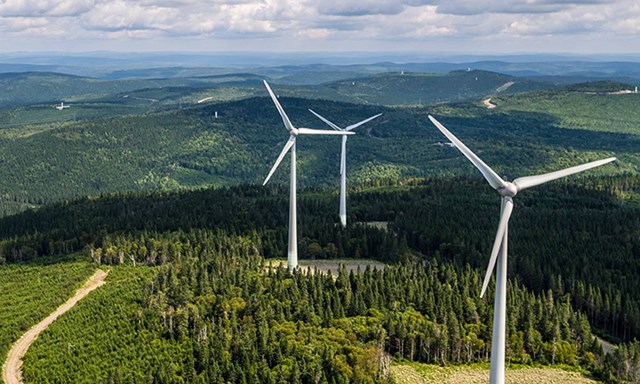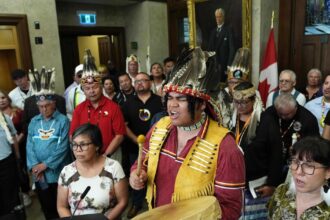In a landmark development for Canada’s renewable energy sector, Quebec’s ambitious wind power expansion has secured a crucial $1.1 billion financing package, signaling growing investor confidence in the province’s green energy transition. The substantial investment will fuel the development of multiple wind energy facilities across Quebec’s resource-rich regions, positioning the province as a leader in North America’s renewable energy landscape.
The financing agreement, finalized this week after months of complex negotiations, brings together a consortium of international and Canadian financial institutions committed to accelerating sustainable infrastructure development. This capital injection represents one of the largest renewable energy investments in Quebec’s history and comes at a pivotal moment as the province works to meet increasingly ambitious climate targets.
“This financing package demonstrates the strong market confidence in Quebec’s renewable energy potential,” said Marc Tremblay, Quebec’s Minister of Energy and Natural Resources. “We are witnessing an unprecedented mobilization of capital toward wind energy projects that will generate clean electricity, create thousands of skilled jobs, and strengthen our energy independence for decades to come.”
The investment will primarily support the construction of five major wind farms across eastern Quebec, with a combined capacity exceeding 1.4 gigawatts—enough to power approximately 650,000 homes annually. Construction is scheduled to begin in early spring, with the first facilities expected to become operational by late 2025.
Industry analysts note that Quebec’s abundant wind resources, combined with its established hydroelectric infrastructure, create ideal conditions for renewable energy development. The province’s strategic geographic position also provides opportunities for electricity exports to northeastern United States markets, where demand for clean energy continues to grow.
“Quebec’s wind energy sector represents a compelling investment opportunity,” explained financial analyst Sophie Bergeron from National Bank. “The province offers stable regulatory frameworks, established grid infrastructure, and natural resources that yield some of the highest capacity factors for wind projects in North America.”
The economic benefits are expected to extend well beyond energy production. The projects will generate an estimated 3,200 construction jobs and 450 permanent positions, predominantly in regions where economic diversification has been a long-standing challenge. Additionally, the CO24 Business sector anticipates significant opportunities for local suppliers and service providers throughout the development cycle.
Indigenous communities are also positioned as key stakeholders in these developments. Several First Nations have secured equity partnerships in the projects, ensuring that benefits flow directly to communities. Chief William Picard of the Innu First Nation commented, “These partnerships represent a new model of economic development that respects our traditional territories while creating sustainable economic opportunities for our people.”
Environmental assessments indicate that the wind farms will displace approximately 2.3 million tons of carbon emissions annually compared to fossil fuel alternatives. This reduction aligns with Quebec’s climate change targets and its broader commitment to achieving carbon neutrality by 2050, as outlined in the province’s CO24 Politics climate strategy announced last year.
While the investment has generated widespread support, some challenges remain. Grid integration, transmission infrastructure upgrades, and the intermittent nature of wind power are technical hurdles that project developers must address. Additionally, some local communities have expressed concerns about visual impacts and potential effects on wildlife, issues that project developers have pledged to mitigate through comprehensive environmental management plans.
The financing package comes amid a broader surge in renewable energy investments across Canada News, as provinces race to decarbonize their electricity sectors and capitalize on the economic opportunities of the green transition. Quebec’s success in securing this substantial funding underscores the province’s competitive advantages in the increasingly crowded renewable energy marketplace.
As we observe this historic investment in Quebec’s energy future, one question remains particularly compelling: Will this massive influx of capital into wind energy trigger a domino effect of similar investments across Canada’s renewable sector, potentially accelerating the nation’s energy transition beyond current projections?
























